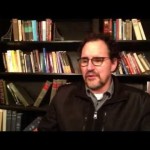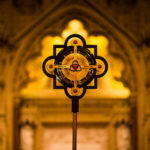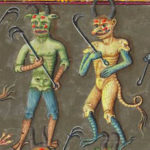We run our website the way we wished the whole internet worked: we provide high quality original content with no ads. We are funded solely by your direct support. Please consider supporting this project.

Why Does God’s Activity Seem So Arbitrary?
Why? It’s the question that never goes away. Why is one infant born sickly and deformed when at the same time another is born perfectly healthy? Why does tragedy repeatedly strike one family while another seems to enjoy uninterrupted peace? On and on we could go with examples. It all seems so arbitrary and unfair.
And this apparent arbitrariness carries over to the way God answers prayer. While most people who regularly pray tell of occasions when their prayers were miraculously answered, they also admit that there is no rhyme or reason as to why some prayers are answered and others aren’t.
We can appeal to the free will of humans and angels to explain why evil in general must be allowed. But this alone does not explain why any particular evil occurs. And it doesn’t explain God’s seemingly arbitrary involvement in the world. Why does God intervene to stop evil in one instance but not in another?
In trying to answer this question, I must confess that what I actually believe is that there can be no final explanation to this question. The arbitrariness of life is a mystery. Yet everything hangs on where we locate this arbitrariness and mystery. Everything hangs on what we think we can and can’t know.
We customarily assume we know a lot about creation but very little about God. After all, we can see creation, but we can’t see God. Creation is finite, but God is infinite. While we can explore creation, we can’t explore God. And since it’s usually assumed that God directly or indirectly controls everything that occurs in creation, we are inclined to attribute the arbitrariness of creation to his mysterious will.
I argue for the opposite view. Because of God’s self-revelation in Jesus Christ, we can be confident of our knowledge about God’s character and general purposes for our life. What we can hardly begin to fathom, however, is the vast complexity of creation, a creation that includes an untold number of human and spiritual free agents whose decisions affect much that comes to pass.
This is not at all to suggest that we know everything about God. To the contrary, there are aspects of God that are utterly beyond comprehension. But we can know what is most important to know, namely, that when we see Jesus Christ we see God. In Christ we confidently know God’s character and purposes. Therefore, when we observe that which is inconsistent with the character of God revealed in Jesus Christ, these things ultimately come from agents who oppose God.
However, we know next to nothing about how these agents’ wills affect what comes to pass.
Behind every particular event in history lies an impenetrably vast matrix of interlocking free decisions made by humans and angels. We experience life as largely arbitrary because we can’t fathom the causal chains that lie behind every particular event. In Christ, God’s character and purposes are not mysterious, but the vast complexity of causal chains is.
The mystery of evil and the question of “why”, therefore, is about an unfathomably complex and war-torn creation, not about God’s character and purpose in creation.
—Adapted from Is God to Blame?, pages 78-80
Photo credit: ignis via VisualHunt / CC BY-NC
Category: General
Tags: Character of God, Free Will, Jesus, Prayer, Problem of Evil
Related Reading

Love and the Other Attributes of God
If we keep our focus on Christ, we see that God’s power and God’s love are not two separate attributes, as many people assume. As I often state, love is not merely something God does; love is what God eternally is. Everything God does, therefore, expresses perfect love. God’s power, therefore, is simply an aspect…

Nothing but Christ Crucified
One of the most remarkable expressions of the all-encompassing nature of the cross is reflected in an incidental, but extremely important, comment that Paul made in his First Letter to the Corinthians. He noted that when he brought “the testimony of God” to Corinth, he hadn’t come “with eloquence or human wisdom”. He instead “resolved…

Why Bart Ehrman Doesn’t Have to Ruin Your Christmas (Or Your Faith) Part 6
This is the sixth of several videos Greg put together to refute Bart Ehrman’s claims published in the article What Do We Really Know About Jesus? In this segment, Greg addresses the apparent discrepancies in the genealogies of Luke and Matthew and the implausibility of the idea that they were simply fabricated. We’ve been hearing that people are using…

A Brief Theology of the Trinity
“The economic Trinity is the immanent Trinity, and the immanent Trinity is the economic Trinity.” This is the maxim introduced by the Catholic theologian Karl Rahner that should shape our discussion of the Trinity. It is simply a short-hand way of saying that since the way God is toward us in Christ truly reveals God,…

If God Can’t Control, How Can I Trust Him?
Question: If God can’t always answer our prayers for healing, for example (and I completely understand why—free will etc), then HOW can he promise to bring good out of the bad things that happen? Surely he is powerless to do that too? And if he can bring good why can’t he therefore heal in the…

Podcast: Doesn’t Jesus Violate the Free Will of Demons When He Casts Them Out?
Greg discusses the free will of demons and speculates on whether God is ever violent towards spiritual entities. http://traffic.libsyn.com/askgregboyd/Episode_0163.mp3
